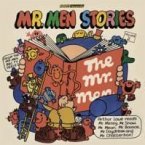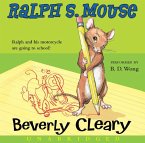What is the connection between a Bear of Very Little Brain and a honey pot? Usually it's the very sticky paw of Winnie-the-Pooh, as he takes a break between adventures for 'a little something'. Alan Bennett gives A.A. Milne's characters the voices you felt they were always meant to have in this collection of stories about Winnie the Pooh, Piglet, Tigger, Eeyore and Owl. Hear all about the fun they have as they lay a Heffalump trap, celebrate Eeyore's birthday, invent the game of Poohsticks and welcome Kanga and Baby Roo to the forest - among many other entertaining escapades. 6 CDs. 6 hrs.
Hinweis: Dieser Artikel kann nur an eine deutsche Lieferadresse ausgeliefert werden.
Hinweis: Dieser Artikel kann nur an eine deutsche Lieferadresse ausgeliefert werden.








